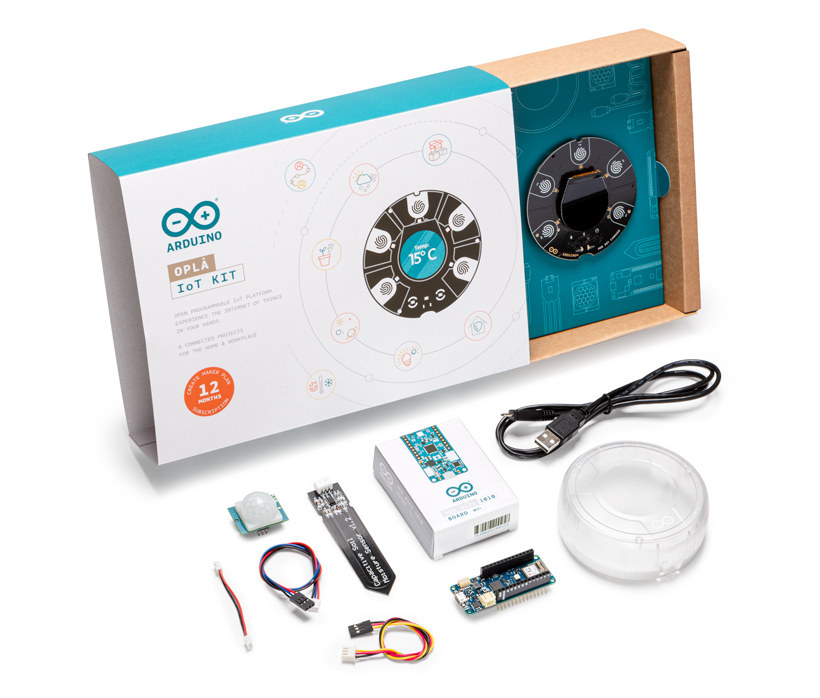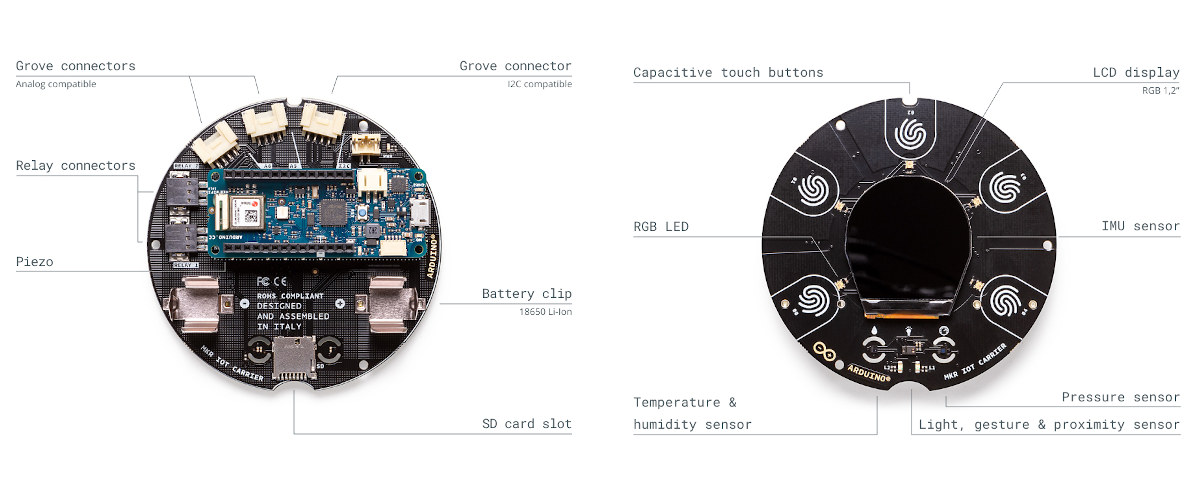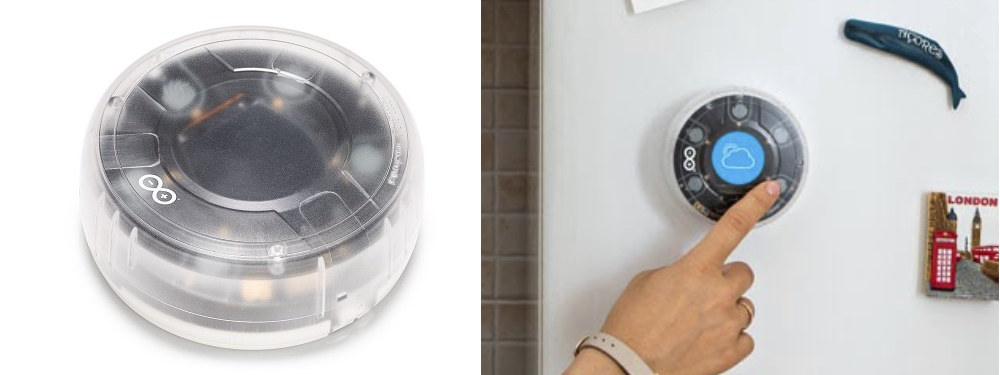
Powered by an Arduino MKR WiFi 1010 board, it is designed to make getting started with IoT easy for beginners, while still allowing more advanced users to customize and hack their smart home applications.
Arduino Oplà IoT Kit is comprised of several hardware components:
- MKR IoT carrier with a 1.2-inch OLED color display, onboard environmental sensors (temperature, humidity, pressure, light, and proximity), IMU sensor, Grove connectors, two 24V relays, and five capacitive touch buttons.
- Arduino MKR WiFi 1010 board powered by Microchip SAMD21 Cortex-M0+ MCU and equipped with a 2.4 GHz WiFi 4 and Bluetooth 4.2 module based on ESP32 chip.
- Sensors – PIR motion sensor and moisture sensor
- A circular plastic enclosure
- Various cables

- Remote Controlled Lights – Change color, light modes, and switch on/off
- Personal Weather Station – Record and monitor local weather conditions
- Home Security Alarm – Detect motion and trigger warnings
- Solar System Tracker – Retrieve data from planets and moons in the solar system
- Inventory Control – Track goods in and out
- Smart Garden – Monitor and manage the environment for your plants
- Thermostat Control – Smart control for heating and cooling systems
- Thinking About You – Send messages between the kit and the Arduino IoT Cloud
The kit also comes with a 12-month subscription to the Arduino Create Maker Plan (usually $5.99 or $6.99 per month) that offers unlimited compilation time and extended access to all the features of the Arduino IoT Cloud.
Arduino Oplà IoT Kit is available now for $114 plus taxes and shipping.

Jean-Luc started CNX Software in 2010 as a part-time endeavor, before quitting his job as a software engineering manager, and starting to write daily news, and reviews full time later in 2011.
Support CNX Software! Donate via cryptocurrencies, become a Patron on Patreon, or purchase goods on Amazon or Aliexpress





